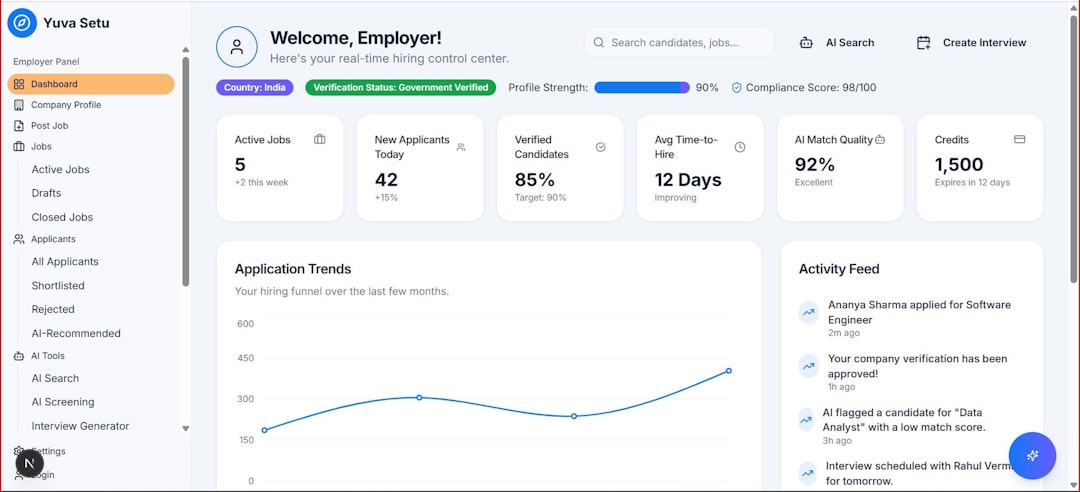
What are the key features of payroll software?
Managing payroll is one of the most critical responsibilities for any business. Ensuring that employees are paid accurately and on time, while complying with tax regulations, requires reliable tools. Modern payroll software simplifies this complex task by automating various aspects of payroll management. As a result, businesses can operate more efficiently and maintain compliance with legal standards.
When selecting the right software, it’s vital to understand the key features of payroll software that can significantly impact day-to-day operations and long-term growth.
Contents
1. Automated Payroll Processing
One of the most essential features is the ability to automatically calculate wages, deductions, and benefits. With payroll software, manual calculations are minimized, reducing errors and saving time.
- Gross pay computation based on salary or hourly rates
- Automatic deduction of taxes, benefits, and other withholdings
- Direct deposit capabilities for seamless payment delivery

2. Tax Management and Compliance
Tax regulations are complex and constantly changing. A robust payroll system helps ensure businesses remain compliant with federal, state, and local tax laws by automating the following processes:
- Applying the correct tax rates to employee earnings
- Generating and filing payroll tax forms such as W-2s and 1099s
- Setting reminders for tax deadlines and obligations
Staying compliant reduces the risk of costly penalties and enhances the company’s reputation among employees and regulatory authorities alike.
3. Employee Self-Service Portal
A self-service portal enables employees to manage aspects of their payroll without involving HR constantly. This feature empowers employees by giving them access to:
- Pay stubs and earnings history
- Tax documents such as W-2 or 1099 forms
- Personal information editing capabilities, like direct deposit details
This not only improves satisfaction but also reduces the administrative workload on HR departments.

4. Time and Attendance Integration
Linking time tracking with payroll ensures accurate compensation based on actual hours worked. Integration features typically include:
- Automatic capture of clock-in and clock-out times
- Calculation of overtime and different shift premiums
- Reduced manual timesheet errors
This integration is crucial for industries that rely on hourly workers or have complex shift patterns.
5. Customizable Report Generation
Payroll software must support robust reporting features to give businesses insights into their labor costs and compliance status. Look for software that offers:
- Detailed payroll summaries
- Custom reporting templates
- Export options to formats like Excel or PDF
Data-driven decision making becomes easier when accurate payroll data is readily available and understandable.
6. Scalability and Multi-state Support
As businesses grow, their payroll needs also evolve. Modern payroll platforms are designed to scale, serving everything from small startups to large enterprises. Key aspects include:
- Support for employees in multiple states or jurisdictions
- Compliance with regional employment laws
- Flexible plan options to accommodate business growth
Choosing scalable payroll software ensures long-term cost efficiency and functionality.
7. Cloud-Based Access and Security
Leading payroll platforms now operate on the cloud, granting real-time access to data from anywhere. Cloud-based payroll systems provide:
- Secure data storage with encryption
- Routine updates for compliance and enhancements
- Remote access for both employers and employees
With high-level data protection mechanisms, cloud payroll software also helps businesses comply with privacy laws and avoid data breaches.
Conclusion
Payroll software is no longer a luxury—it’s a necessary tool for operating a modern business. By incorporating features like automated calculations, tax compliance, employee self-service, and cloud access, payroll systems enhance accuracy, efficiency, and security.
When choosing a solution, it is critical to assess the specific needs of your organization, including existing HR processes, the size of your workforce, and future expansion plans. Investing in the right payroll software creates a solid foundation for operational success today and in years to come.
